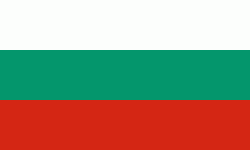Kapitan Andreevo (Kapitan Andreevo)
Kapitan Andreevo (Капитан Андреево ) is a village near the Bulgaria—Turkey—Greece tripoint in Svilengrad municipality, Haskovo Province, southern Bulgaria. As of 2005 it has 948 inhabitants and the mayor is Dimitar Shiderov. Due to the proximity with Turkey, there is a major border checkpoint built there, with the Turkish side of the checkpoint being called Kapıkule. The busy Bulgaria–Turkey border crossing at Kapitan Andreevo is an important point of entrance to the European Union. Kapitan Andreevo is located at 41.71667°N, 26.31667°W, 30 metres above sea level.
The checkpoint, one of the busiest in the European Union, has been notorious as an entry point for drugs into the EU, and has long been reported to be run by organized crime. It is part of a wider Bulgarian problem of border corruption, which has hindered Bulgaria's accession into the Schengen area.
The checkpoint, one of the busiest in the European Union, has been notorious as an entry point for drugs into the EU, and has long been reported to be run by organized crime. It is part of a wider Bulgarian problem of border corruption, which has hindered Bulgaria's accession into the Schengen area.
Map - Kapitan Andreevo (Kapitan Andreevo)
Map
Country - Bulgaria
 |
 |
| Flag of Bulgaria | |
One of the earliest societies in the lands of modern-day Bulgaria was the Neolithic Karanovo culture, which dates back to 6,500 BC. In the 6th to 3rd century BC the region was a battleground for ancient Thracians, Persians, Celts and Macedonians; stability came when the Roman Empire conquered the region in AD 45. After the Roman state splintered, tribal invasions in the region resumed. Around the 6th century, these territories were settled by the early Slavs. The Bulgars, led by Asparuh, attacked from the lands of Old Great Bulgaria and permanently invaded the Balkans in the late 7th century. They established the First Bulgarian Empire, victoriously recognised by treaty in 681 AD by the Eastern Roman Empire. It dominated most of the Balkans and significantly influenced Slavic cultures by developing the Cyrillic script. The First Bulgarian Empire lasted until the early 11th century, when Byzantine emperor Basil II conquered and dismantled it. A successful Bulgarian revolt in 1185 established a Second Bulgarian Empire, which reached its apex under Ivan Asen II (1218–1241). After numerous exhausting wars and feudal strife, the empire disintegrated and in 1396 fell under Ottoman rule for nearly five centuries.
Currency / Language
| ISO | Currency | Symbol | Significant figures |
|---|---|---|---|
| BGN | Bulgarian lev | лв | 2 |
| ISO | Language |
|---|---|
| BG | Bulgarian language |
| TR | Turkish language |















